
Voronoi Selection for Drug Network Visualization in MR
March 12, 2018
Researchers at the Englander Institute for Precision Medicine (EIPM) bring together basic science, medicine, DNA sequencing and big data to deliver the next generation of precision medicine; the most promising approach to tackle diseases that have thus far eluded effective treatments like cancer, neurodegenerative diseases, and rare genetic conditions.
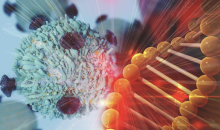
A New Regulatory Threat to Cancer Patients
February 26, 2018
25 February 2018
By Dr. Olivier Elemento
"The federal government is threatening to limit treatment options for doctors fighting cancer. A regulatory decision due this Wednesday from the Centers for Medicare and Medicaid Services (CMS) could undermine the care delivered to the more than 1.6 million Americans who are diagnosed with cancer each year.
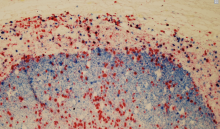
AI Aids in Cancer Diagnosis
February 12, 2018
An artificial intelligence (AI) program developed by Weill Cornell Medicine and NewYork-Presbyterian researchers can distinguish types of cancer from images of cells with almost 100 percent accuracy, according to a new study. This new technology has the potential to augment cancer diagnosis techniques that currently require the human eye.
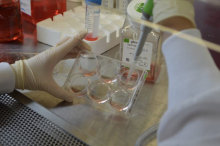
What is CH?
January 13, 2018
What is hematopoiesis?
Hematopoiesis refers to the body’s biological process of making blood. Our bone marrow contains blood-forming cells termed “hematopoietic stem cells.” These stem cells produce all the blood cells in our body.
What is clonal hematopoiesis (CH)?
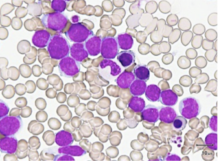
Signs of AML may be present years before diagnosis
December 13, 2017
Patients with acute myeloid leukemia (AML) may have genetic mutations in their blood indicating they are at high risk of developing the disease about nine years before diagnosis, according to research from Weill Cornell Medicine and NewYork-Presbyterian investigators. They presented their findings at the 59th annual American Society of Hematology meeting Dec. 10 in Atlanta.
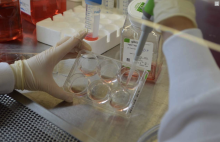
Tumor Models
November 10, 2017
The Englander Institute for Precision Medicine (EIPM) has developed unique models to study cancer in its laboratories, such as growing mini tumors called ‘organoids’.
Human cancer tissue that is grown into organoids in the laboratory could be used to test drug responses and to personalize therapy.
Organoids can be made to resemble organs or tissues such as gut, kidney, pancreas, liver, breast, prostate, and even brain tissue, all complete with accurate micro-anatomy.

Targeting Cancer
November 10, 2017
Precision medicine harnesses a unique mix of personal genetic, genomic and clinical information to inform patients’ medical care, for both treatment and prevention of diseases. This information includes individual genomic DNA sequences, which can potentially identify variants that cause disease, and in some cases predict how a patient will respond to a particular drug.

New Big Data Approach Predicts Drug Toxicity in Humans
November 10, 2017
Researchers can now predict the odds of experimental drugs succeeding in clinical trials, thanks to a new data-driven approach developed by Weill Cornell Medicine scientists. The method detects toxic side effects that may disqualify drugs from human use, giving drug developers an early warning before initiating clinical trials, according to a new study published Sept. 15 in Cell Chemical Biology.

Precision Medicine Is More Than Genomic Sequencing
October 24, 2017
This is an excerpt of a story written by Robert H. Carlson, MBA, appearing on Medscape. Read the original article here.
Basing decisions about cancer treatment on mutations and other somatic genomic abnormalities has become a standard of care for patients with some tumors types, but the use of targeted therapies rarely leads to cure, and responses can be incomplete. If clinical decisions are to improve, both mutation data and cell context—the cellular and genomic milieu in which the mutations are found—must be considered.

Chemotherapy Drives Treatment Resistance in Bladder Cancer
October 17, 2017
Chemotherapy is indicated as the first line of treatment for advanced bladder cancer. New research by Weill Cornell Medicine and University of Trento scientists shows that while chemotherapy kills the most common type of bladder cancer, urothelial cancer, chemotherapy also shapes the genetic evolution of remaining urothelial cancer cell clones to become drug-resistant.

